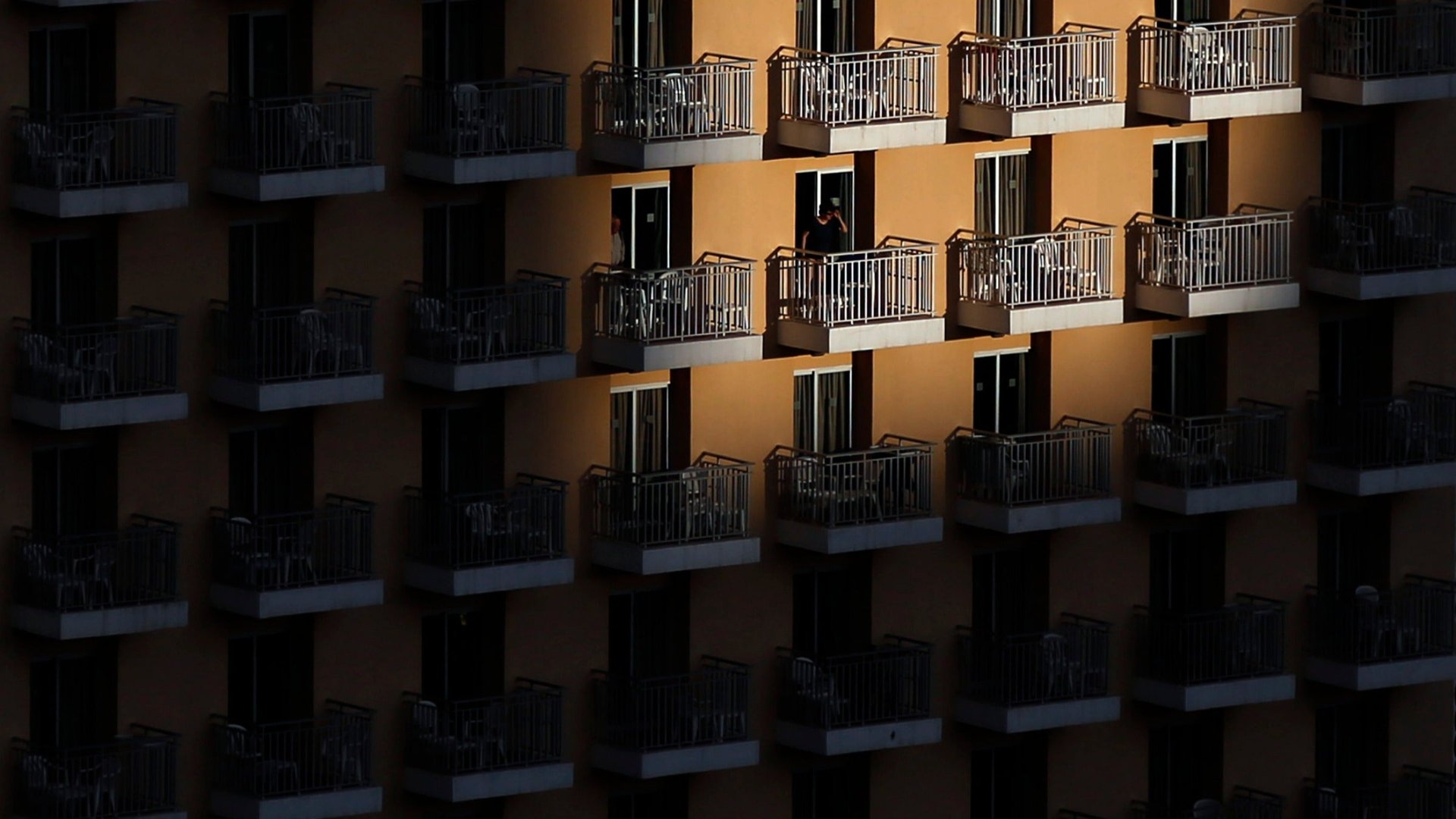Spain’s tourist boom won’t help its tax revenues thanks to Airbnb
One bright spot for Spain’s ailing economy has been tourism. According to a new count by the government, tourism arrivals in the first half of 2013 have been strong, and June saw the country break records with 6.3 million visitors . This was due, in part, to unrest in North Africa cutting down on the number of alternate Mediterranean destinations. While the news may be good at the top line, Spain’s traditional tourist industry is getting less of the benefit while private property owners are getting more.


One bright spot for Spain’s ailing economy has been tourism. According to a new count by the government, tourism arrivals in the first half of 2013 have been strong, and June saw the country break records with 6.3 million visitors . This was due, in part, to unrest in North Africa cutting down on the number of alternate Mediterranean destinations. While the news may be good at the top line, Spain’s traditional tourist industry is getting less of the benefit while private property owners are getting more.
In all, tourism pumped over €24 billion ($32 billion) into the country, up 6.6% from 2012, though hoteliers may not be the beneficiary of that increase. According to data from Spain’s Ministry of Tourism, visitors choosing not to stay in hotels jumped by 17.6% in June, and is up over 10% since the start of the year. The number of tourists not taking packaged holidays has also risen by 8% since January.
The rise of Airbnb, and its clones, has gotten credit for some of this fall-off in traditional accommodation. Spain is Airbnb’s third most popular market worldwide, but the implications of this popularity are being noted by its tax-revenue starved government. The country’s La Caixa bank has estimated two-thirds of the company’s 1.1 billion overnight stays in Spain were with unregistered property owners, representing a drain on tax receipts that are starting to bite. Catalonia alone is reported to have over 1 million unregulated beds available, versus 600,000 in the regulated market. The company itself has responded by saying tax dealings are between the property owners and relevant government bodies.
The Spanish government has increasingly turned the screws on these rentals, most recently looking at overturning established law that allows Spanish homeowners the right to rent short-term, in a move echoing New York’s crackdown on the sharing economy. Tourism groups and even city authorities are caught in the middle, seeing increased local revenues in food, taxis and other consumables buoyed by the visitors for whom the lower costs of Airbnb may be making trips possible. (Full disclosure: I’m staying in a Spanish Airbnb rental at the moment, albeit offered by a very competent property management company.)
Spain’s short-term gain (and it needs all the gain it can get) may be setting the table for long-term pain if the trend of grey-market rentals further erode the traditional, licensed market, and nothing is done to bring the so-called sharing economy into the light. Given the desperate need for revenue at national level, government has seen support for bottom-up economic initiative as an easy target—just see the debacle over solar power, where mismanaged subsidies and industry lobbying has now turned into a bloodbath for consumer-generated power. Hopefully it will see a way to harness the DIY hospitality movement as a means of rebuilding the industry—and if Airbnb is smart, it will play along, instead of playing the libertarian card.